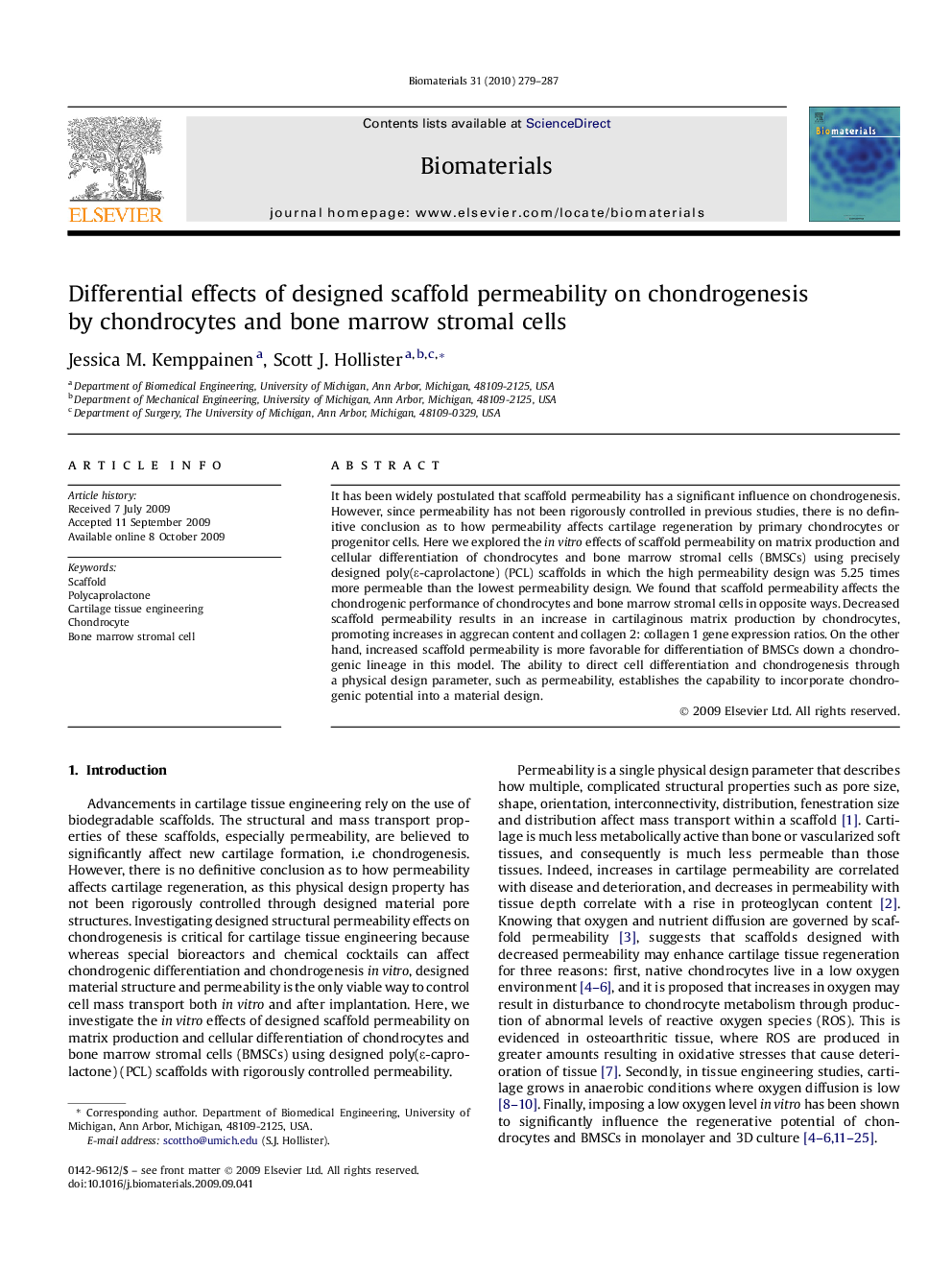| Article ID | Journal | Published Year | Pages | File Type |
|---|---|---|---|---|
| 8628 | Biomaterials | 2010 | 9 Pages |
It has been widely postulated that scaffold permeability has a significant influence on chondrogenesis. However, since permeability has not been rigorously controlled in previous studies, there is no definitive conclusion as to how permeability affects cartilage regeneration by primary chondrocytes or progenitor cells. Here we explored the in vitro effects of scaffold permeability on matrix production and cellular differentiation of chondrocytes and bone marrow stromal cells (BMSCs) using precisely designed poly(ɛ-caprolactone) (PCL) scaffolds in which the high permeability design was 5.25 times more permeable than the lowest permeability design. We found that scaffold permeability affects the chondrogenic performance of chondrocytes and bone marrow stromal cells in opposite ways. Decreased scaffold permeability results in an increase in cartilaginous matrix production by chondrocytes, promoting increases in aggrecan content and collagen 2: collagen 1 gene expression ratios. On the other hand, increased scaffold permeability is more favorable for differentiation of BMSCs down a chondrogenic lineage in this model. The ability to direct cell differentiation and chondrogenesis through a physical design parameter, such as permeability, establishes the capability to incorporate chondrogenic potential into a material design.
